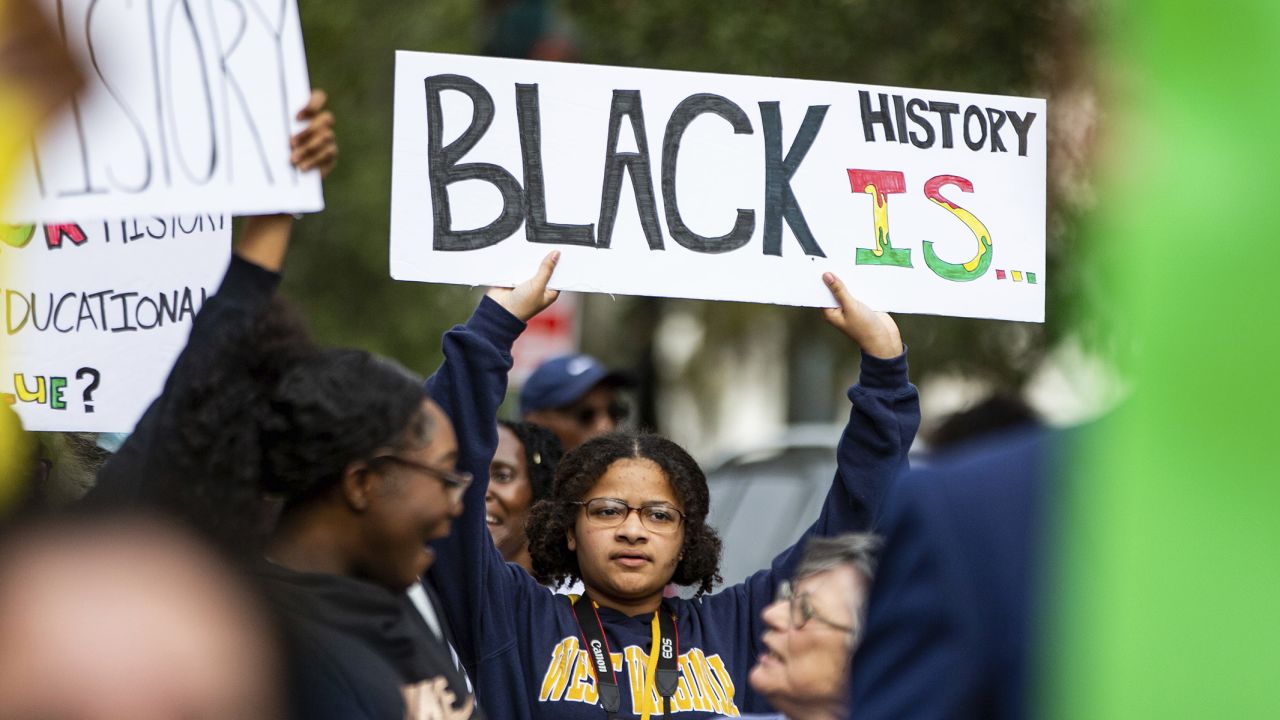States
Florida Introduces Controversial African-American History Standards

The Florida Board of Education overwhelmingly adopted new African-American history standards following the state’s 2022 race-related education statute in a controversial move. These standards, sponsored by Governor Ron DeSantis, have sparked arguments over the state’s approach to teaching America’s racial history.
Education Commissioner Manny Diaz Jr. called the new curriculum a fair depiction of the “good, the bad, and the ugly” of U.S. history. Florida Education Association union and NAACP Florida State Conference opponents called the modifications an effort to “whitewash” history.
Standards stressing how slaves purportedly benefited from their abilities and teachings on African-American brutality were controversial. The curriculum’s Black history teachings for younger kids were criticized for focusing only on Black innovators, explorers, and artists without critical critique.
Despite resistance, state board members and administrators said the guidelines do not promote slavery. Kelly Garcia, a DeSantis-appointed board member, stressed that the curriculum included America’s worst periods.
The Education Commissioner Criticized The Florida Education Association Union For Their Lawsuit History And Lack Of Substance.
Colleges and institutions are challenging Florida’s “anti-woke” legislation, which bans “white privilege” in the classroom. The state has also fought the College Board over African American studies AP program elements.
Stakeholders Continue To Discuss Whether Florida’s New Teaching Standards Appropriately Depict African-American History’s Intricacies And Realities.
African-American history: Florida’s Controversial Teaching Standards React To Racial History Handling
The Florida Board of Education’s overwhelming ratification of new Black history teaching standards has sparked a spat over racial history. Governor Ron DeSantis’ recommendations have sparked disagreements about the state’s approach to teaching America’s racial history. The Florida Education Association union and the NAACP Florida State Conference have warned that the modifications risk whitewashing history by downplaying the Black experience in America. The disagreement highlights the ongoing struggle to reconcile and understand racial history’s complexity without misrepresenting past atrocities.
Contested Standards For Glossing Over Systemic Racism And Violence Against Black Communities
Numerous arguments have arisen over the new teaching requirements. Critics have pointed to curricular aspects that downplay systematic racism and violence against Black communities. Standards implying that some African Americans benefited personally from their slavery have generated criticism over the possible perpetuating of damaging stereotypes. Critics have also criticized the curriculum’s alleged limited focus on Black history for younger students, arguing that the standards mainly recognize Black achievements and fail to address the profound impact of racism and discrimination on Black lives throughout history.
As Stakeholders Debate Florida’s Teaching Standards’ Ability To Convey Black History’s Full Scope, Diverse Perspectives Emerge.
Florida’s contentious teaching standards have divided stakeholders over whether the curriculum covers Black history enough. State officials and board members have stressed the curriculum’s broad approach, including the worst moments of American history, while detractors worry about diluting crucial tales. The continuing discussion highlights the difficulties of managing racial history teaching and the necessity for a nuanced and inclusive approach that correctly depicts the Black experience in America.
Florida’s Educational Policy And The Unfinished Story Of American School Racial Oppression
Florida’s education reform has revived conversations on racial history’s intricacies in American classrooms. As the state addresses delicate themes like racism and the Black experience more carefully, concerns have arisen about perpetuating an incomplete narrative. The state’s educational approach risks distorting views of racial oppression by stressing selective history and downplaying systematic racism’s devastating effects on Black communities, critics say. This has led to proposals for a more thorough and inclusive curriculum creation that fosters critical engagement with America’s whole racial history and discrimination’s lasting effects.
Read Also: Florida Compels Modifications To Others And Rejects Dozens Of Social Studies Textbooks
Educational Responsibility And Nuanced Approaches To Communicating Racism In Florida Classrooms
As Florida’s school system implements changed teaching standards, educators’ role in addressing racism has grown. Despite the heated disputes, educators and activists have stressed the significance of nuanced methods that foster critical thinking and a complete grasp of racism’s historical and present effects on Black communities. Inclusive educators believe that open and honest discussions about the legacy of racial discrimination can help students develop empathy and social awareness, making them more informed and socially conscious.
Examining Florida’s Controversial Teaching Standards: Policy, Ideology, And History
Florida’s teaching standards dispute illustrates the complicated interplay of educational policy, ideology, and history. The state’s choice to manage racial education has spurred a more extensive assessment of educational policy’s ideological reasons. Proponents say the revamped curriculum balances American history, but detractors say it fails to confront systematic and entrenched racism. This convergence of views emphasizes the necessity for a thorough and fair curriculum that addresses the harsh reality of racial discrimination and promotes critical thinking and empathy in pupils. The current discussion highlights the continued problems of navigating the complicated terrain of racial history teaching while maintaining inclusion and truth.













You must be logged in to post a comment Login